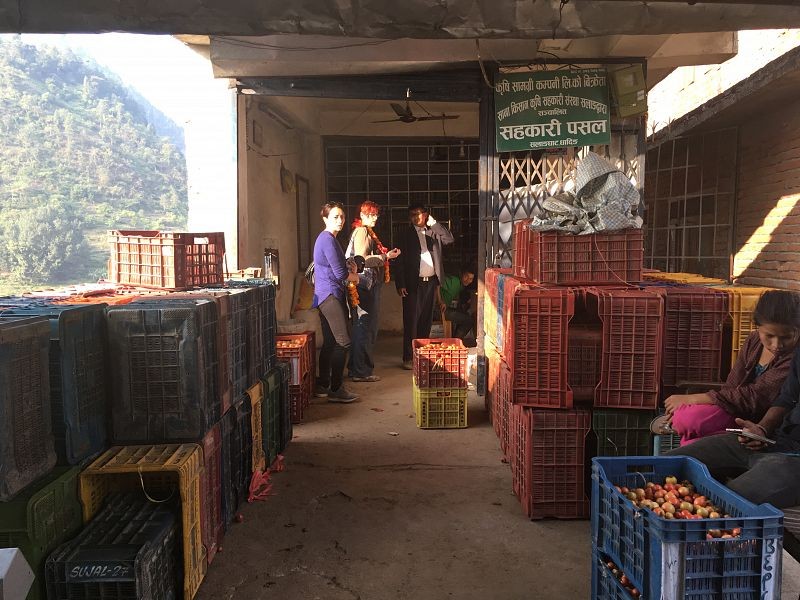This project aims to demonstrate the viability of a community managed irrigation system in rural Nepal, using a photovoltaic pumping system to increase production levels and also enhance the quality of the vegetables produced.
 The lack of a reliable energy supply for irrigation leaves many Nepalese farmers without access to the water necessary for growing vegetables in the dry season. While the government subsidises solar photovoltaic technologies for the pumping of drinking water, access to energy for the purposes of irrigation is not secure in many parts of rural Nepal.
This project aims to demonstrate the viability of a community managed irrigation system in rural Nepal, using a photovoltaic pumping system to increase production levels and also enhance the quality of the vegetables produced.
The specific objectives of the project are:
The lack of a reliable energy supply for irrigation leaves many Nepalese farmers without access to the water necessary for growing vegetables in the dry season. While the government subsidises solar photovoltaic technologies for the pumping of drinking water, access to energy for the purposes of irrigation is not secure in many parts of rural Nepal.
This project aims to demonstrate the viability of a community managed irrigation system in rural Nepal, using a photovoltaic pumping system to increase production levels and also enhance the quality of the vegetables produced.
The specific objectives of the project are:
- To increase the access to a reliable energy supply for irrigation, enabling 150 households to increase their production of quality vegetables throughout the year;
- To develop an Energy Service Provider (ESP) to manage the irrigation systems;
- To use impact and portfolio investment to finance energy projects in rural areas;
- And to disseminate the outcomes and lessons learned to practitioners and policy makers for up-scaling the technology and business model in other areas.
 The project will be implemented in two rural districts of Nepal (Makwanpur and Dhading). The project partners are Practical Action, SunFarmer, Sana Kisan Bikash Kendriya Sangh (SKBKS), Small Farmers Development Bank (SFDB) and local cooperatives. The local cooperatives will implement and manage the project at field level, while SunFarmer, a US based not for profit organisation, will provide impact and portfolio financing to the project. SKBKS will coordinate capacity building support among those cooperatives that benefit from wholesale loans from the SFDB. The project is scheduled to last for two years.
The project will be implemented in two rural districts of Nepal (Makwanpur and Dhading). The project partners are Practical Action, SunFarmer, Sana Kisan Bikash Kendriya Sangh (SKBKS), Small Farmers Development Bank (SFDB) and local cooperatives. The local cooperatives will implement and manage the project at field level, while SunFarmer, a US based not for profit organisation, will provide impact and portfolio financing to the project. SKBKS will coordinate capacity building support among those cooperatives that benefit from wholesale loans from the SFDB. The project is scheduled to last for two years.Projects with same technology
Exchange: Community Trainers for Renewable Energy Technology Use in Sustainable Food Production and Water Management
The focus of this exchange activity is a social alliance and collective learning process between NGOs and rural communities from three regions of Colombia (Santander, Córdoba and Antioquia). It is based on the accumulated results achieved previously in a WISIONS supported project and ongoing community work in the field of renewable energy and sustainable livelihood strategies.
Integrating Solar Powered Drip Irrigation with Sustainable Charcoal Production
Projects in same country
Interconnected Mini-grids for Intensive Rural Electrification in Nepal (IMIREN)
Developing Alternative Sustainable Income-Generating Activity by the Efficient Use of Surplus Energy From an Existing Micro-Hydro Plant
This project aims to pilot a water lifting technology for irrigation and an associated off-season vegetable farming enterprise